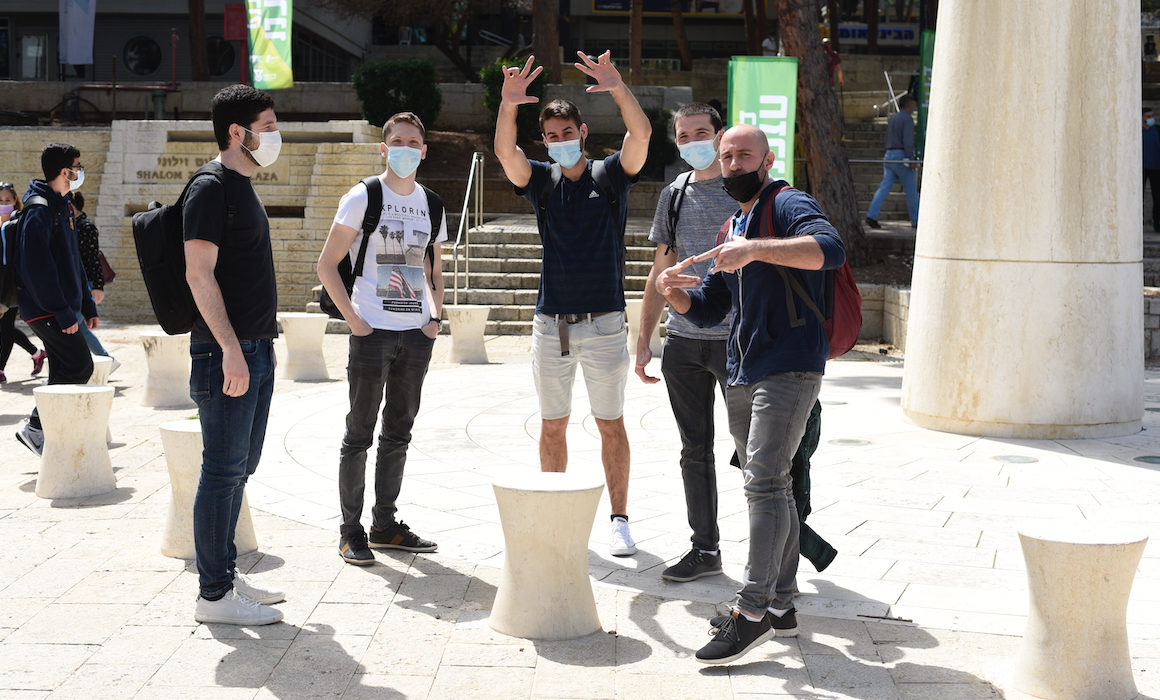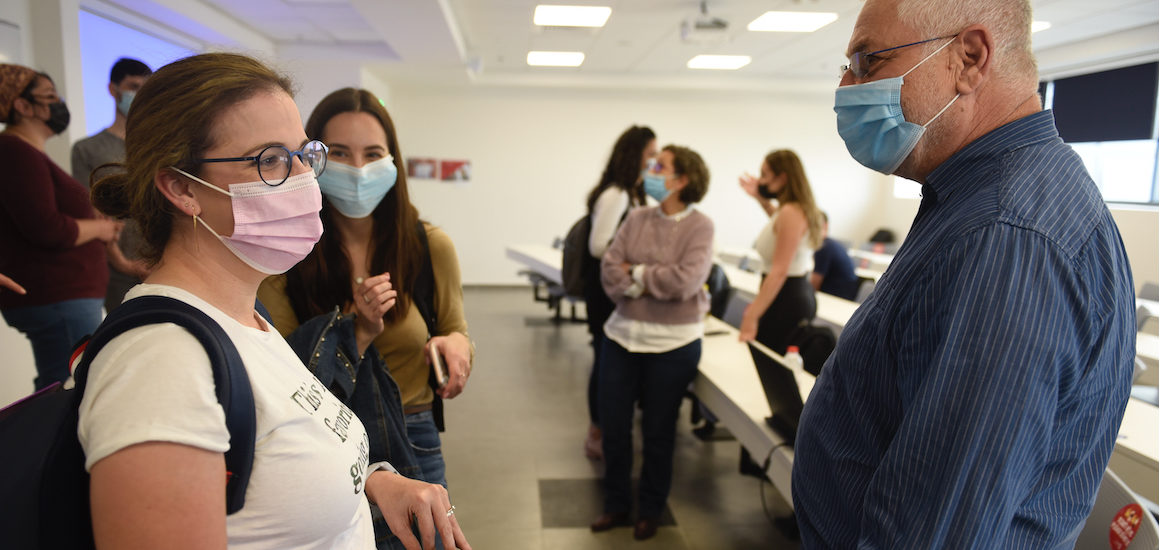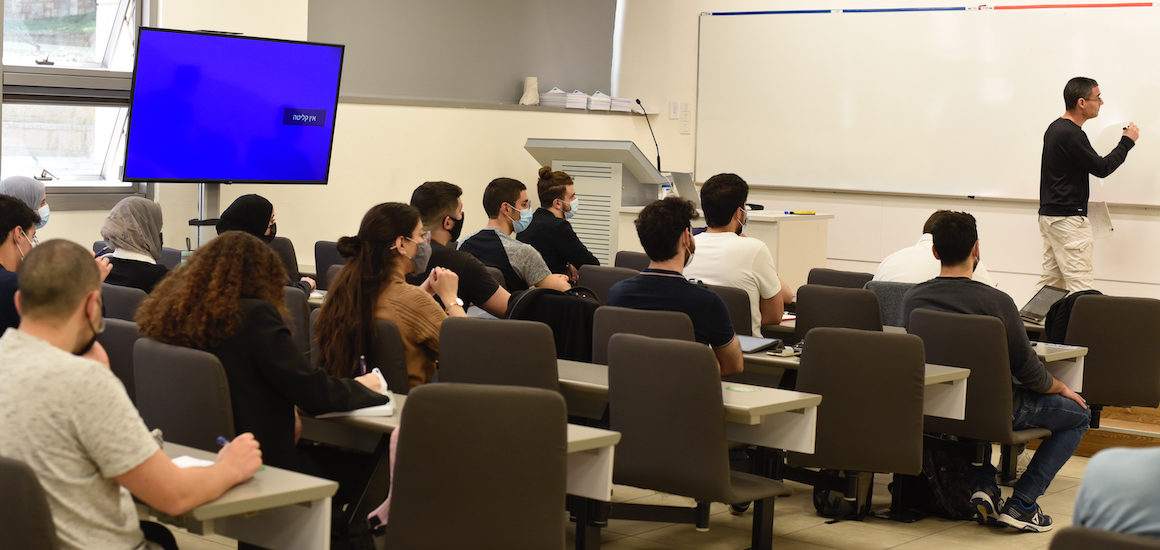Pictured above: Students return to campus.
The Technion campus opened for the 2021 spring semester on Sunday, March 21, using a model of hybrid teaching – a combination of online and frontal teaching – in accordance with the Ministry of Health’s restrictions and “green” guidelines. After a challenging year of online study, students who pre-registered and presented a vaccine certificate were able to begin returning to classrooms, campuses, and frontal learning.
The Technion buildings and faculties were well prepared for the students’ return. The security unit has assigned bouncers, security guards, scouts, and certified COVID-19 inspectors on the isolated campus to keep students and faculty members safe, and to ensure that the green regulations are maintained. Only students with a vaccine certificate will be able to study in classrooms, and class size will be regulated.
The returning students were greeted under a “We Came Back Green” campaign instituted by the Office of the Dean of Students and the Student Union. The celebration also included eye-opening flags, placards, fortune cookies, and cards.
Technion President Prof. Uri Sivan with students on campus tour
“This is a special day for all of us,” said Technion President, Professor Uri Sivan on a tour of the campus with Senior Vice President Professor Oded Rabinowitz and the Deans of the Technion. “The members of the academic and administrative staff have already gradually returned to campus in the past two weeks, in accordance with the Ministry of Health’s guidelines. Today, it’s the turn of the students, who are the heartbeat of the Technion, to return to the classrooms. This spring semester comes after a long winter, and after the pandemic and lasted a whole year. Now we can finally go back and hear the academic hum in the classrooms, in the labs, in the hallways, and in the offices. With the return of the students, the campus will return to being a vibrant intellectual center.”
“I haven’t taught on campus in over a year and it’s definitely refreshing – a thousand times more comfortable than teaching on Zoom, which is sadly what we’ve become used to,” said Professor Eitan Yaacobi, researcher and lecturer in combinatorics in the Taub Faculty of Computer Science. “For the students here in class today, it’s the first time that they are studying live on campus. We now understand how important it is to have a personal relationship with the students, something I really missed this past year. Good luck to all the teachers, and especially to those learning, the students.”
“I’m really excited to be here, and I think the lecturer is more excited than anyone,” said Liad Pearl, a second-year student in computer engineering. “Suddenly, people are making jokes in class and laughing for real, not in front of a screen.”
Hybrid class. In Dr. Aviv Censor’s class, students learn in class and online at the same time
“We’re very excited to be back in class,” said first-year biology students in Professor Meital Landau’s biochemistry and enzymology course, “just like on the first day of first grade.”
One year ago, on the eve of opening the spring semester 2020, Israel’s institutions of higher education imposed a blanket ban on frontal teaching. Despite the short notice, the Technion managed to open the 2020 spring semester online on its originally scheduled date, with hardly any problems. It was the result of a conscious and ongoing effort to introduce digital teaching technologies in the years prior to the pandemic.
The two semesters that have passed since March 2020 have taken place online, thanks to the tireless work of Technion Senior Vice President Professor Oded Rabinowitz, Dean of Undergraduate Studies Professor Hossam Haick, and many others who have proven that while the digital platforms allow for online teaching and continued studies, they will never be able to completely replace frontal teaching. The interaction between the students and the lecturers is an essential component of campus life, learning, and student development. This is the background for the advancement of hybrid teaching, which combines online teaching with active classroom learning.




